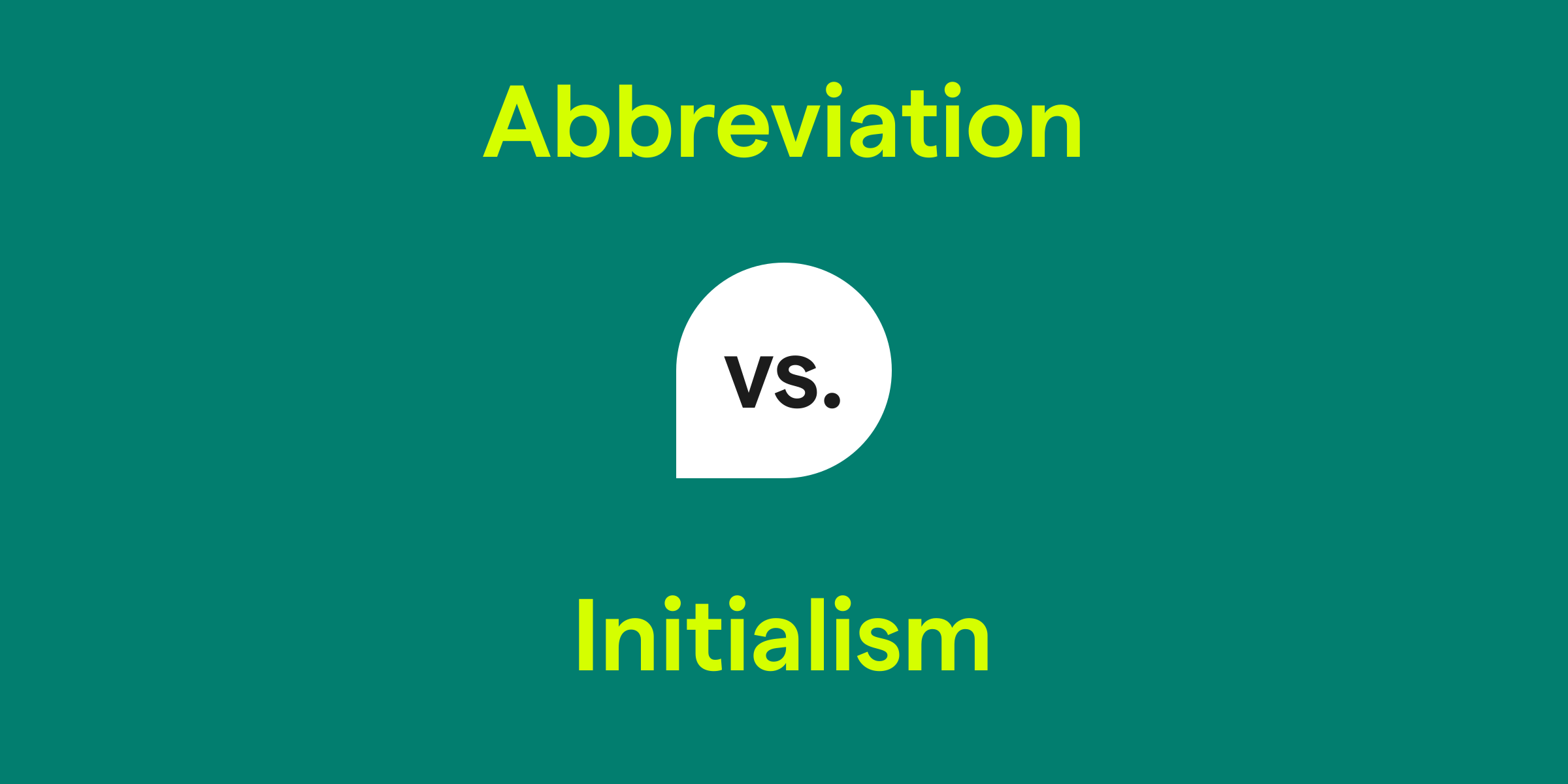Abbreviation vs. Initialism: What's the Difference?
Abbreviations and initialisms are both types of shortened words, but there is a clear distinction between the two. An abbreviation is a truncated word form where the beginning or end of the full word is maintained, such as 'Ave.' for 'Avenue'. An initialism is a type of abbreviation made up of the initial letters of a phrase or a series of words, which are pronounced individually as in 'FBI' for 'Federal Bureau of Investigation'. While both serve to condense language, their usage and pronunciation differ significantly.

How do you use the word abbreviation in a sentence?
You use abbreviation when referring to a shortened form of a word or phrase that maintains a part of the original. It's common in written language to save space and in spoken language to save time. Abbreviations are versatile and can adapt to various contexts, from formal documents to casual conversations.
Examples of abbreviation in a sentence
- The term 'Rd.' is an abbreviation for 'Road' used in postal addresses.
- In medical records, 'HR' is a common abbreviation for 'heart rate'.
- When noting the time, 'hrs' is a useful abbreviation for 'hours'.
How do you use the word initialism in a sentence?
Initialism serves as a time-saving linguistic shortcut, allowing people to quickly refer to complex names or phrases by stating just the first letters. Like acronyms, initialisms are typically nouns and are used in both written and spoken communication, especially when the full term is lengthy or cumbersome to repeat.
Examples of initialism in a sentence
- During orientation, new employees were informed that HR is the initialism for Human Resources.
- When discussing their favorite shows, my friends frequently mention HBO, the initialism for Home Box Office.
- Can you believe that the first CD-ROM, an initialism for Compact Disc Read-Only Memory, was introduced over 30 years ago?
Abbreviations and initialisms definition, parts of speech, and pronunciation
Abbreviation definition:
An abbreviation is a shortened form of a word or phrase that omits certain letters or syllables and often ends with a period.
Abbreviation parts of speech:
Abbreviation pronunciation:
Abbreviation is pronounced as /əˌbriː.viˈeɪ.ʃən/.
Initialism definition:
An initialism is a type of acronym formed from the initial letters of a series of words, and each letter is pronounced individually.
Initialism parts of speech:
Initialism pronunciation:
Initialism is pronounced as /ɪˈnɪʃ.ə.lɪ.zəm/.
An abbreviation is a shortened form of a word or phrase that omits certain letters or syllables and often ends with a period.
Abbreviation parts of speech:
- As a noun, abbreviation refers to the result of abbreviating a word or phrase, like 'St.' is the abbreviation for 'Street'.
Abbreviation pronunciation:
Abbreviation is pronounced as /əˌbriː.viˈeɪ.ʃən/.
Initialism definition:
An initialism is a type of acronym formed from the initial letters of a series of words, and each letter is pronounced individually.
Initialism parts of speech:
- Used as a noun, an initialism often represents organizations or concepts, such as 'UN' for 'United Nations'.
Initialism pronunciation:
Initialism is pronounced as /ɪˈnɪʃ.ə.lɪ.zəm/.
Abbreviation vs. Initialism in a nutshell
To sum up, a key difference lies in how each term is used and pronounced. Abbreviations are shortened forms of words, maintaining some original letters while often adding a period. In contrast, initialisms are constructed from the first letters of multiple words and each letter is spoken aloud. Understanding this distinction enhances clarity and precision in both written and verbal communication.
Get AI Writing Assistance Wherever You Type
Make sure your vocabulary is on point and every punctuation mark is in the right place, no matter where you’re working. Grammarly works across more than 1 million websites and apps so you can improve your writing without copying, pasting, or breaking focus.

More Commonly Confused Words
Interest piqued? Pore (not pour) over other commonly confused words to help your writing reach peak (not peek) performance.